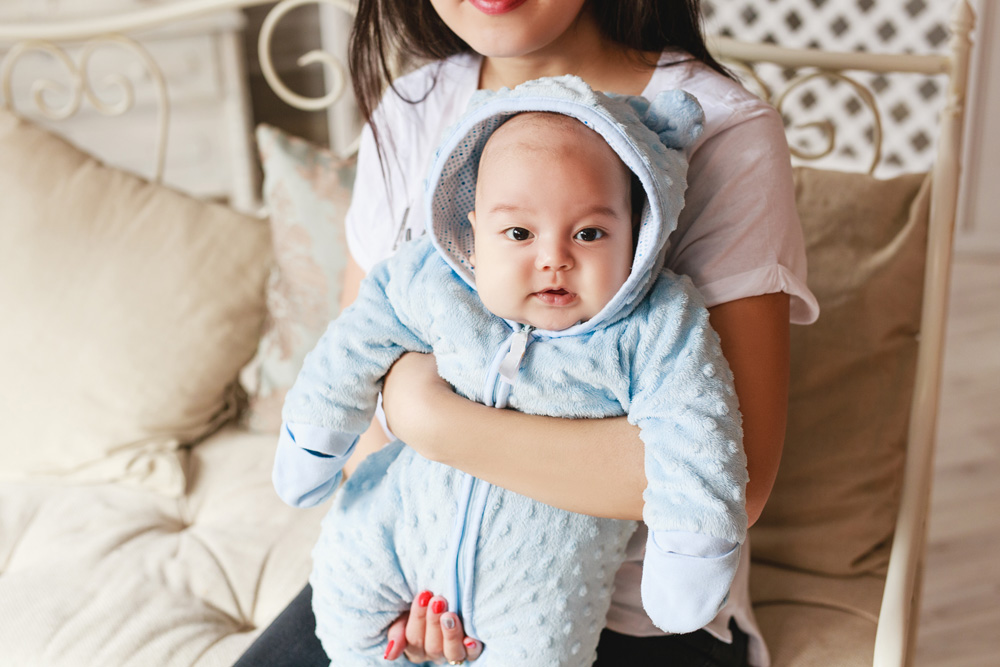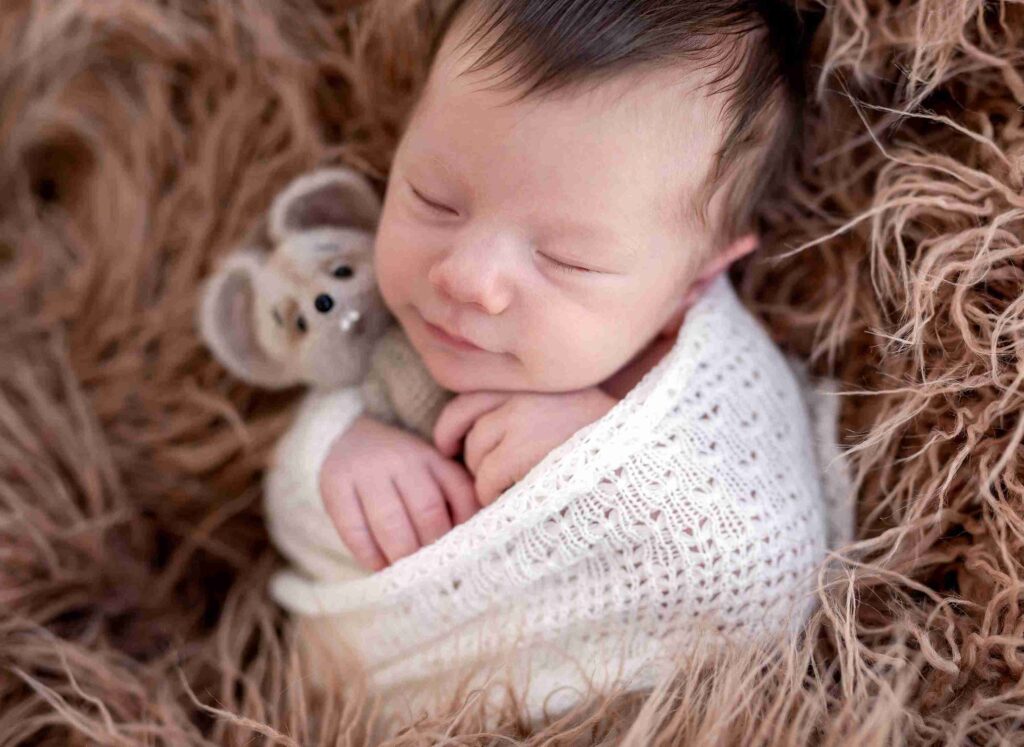
Mindfulness in Parenting: Cultivating Presence and Connection with Your Baby
Becoming a parent is a transformative experience that brings with it a myriad of emotions, challenges, and joys. Amidst the sleepless nights, diaper changes, and feeding schedules, it can be easy for parents to feel overwhelmed and disconnected from the present moment.
However, the practice of mindfulness offers a powerful tool for parents to cultivate presence and connection with their baby, fostering a deeper bond and a more enriching parenting experience.
The Power of Mindfulness in Parenting
Mindfulness, at its core, is the practice of being fully present and engaged in the current moment, without judgment. It encourages individuals to pay attention to their thoughts, feelings, and bodily sensations, fostering a sense of awareness and acceptance.
When applied to parenting, mindfulness can be a valuable resource for navigating the ups and downs of caring for a newborn, promoting a more grounded and responsive approach to the challenges of early parenthood.
Cultivating Presence
One of the fundamental aspects of mindfulness in parenting is the cultivation of presence. In the context of caring for a baby, this involves being fully attuned to the infant’s needs, cues, and nonverbal communication.
By approaching each interaction with a sense of mindful awareness, parents can better understand and respond to their baby’s signals, fostering a more harmonious and responsive caregiving dynamic.
Tip: During feeding times, focus on being present with your baby. Pay attention to their cues, body language, and the bonding experience of nourishing them. This can create a deeper connection between parent and child.
The Importance of Self-Care
Moreover, mindfulness in parenting emphasizes the importance of self-care and self-compassion for the parent. Caring for a newborn can be physically and emotionally demanding, and it’s crucial for parents to prioritize their own well-being in order to be fully present for their baby.
Mindfulness practices such as meditation, deep breathing, and self-reflection can help parents cultivate a sense of calm and resilience, enabling them to navigate the challenges of early parenthood with greater ease and grace.
Tip: Take a few moments each day to practice mindfulness meditation. This can be as simple as finding a quiet space, closing your eyes, and focusing on your breath. This practice can help you feel more centered and present when caring for your baby.
Incorporating Mindfulness Into Daily Routines
Incorporating mindfulness into daily routines with a newborn can take many forms. For example, the simple act of diaper changing or feeding can become an opportunity for mindful connection.
By approaching these tasks with a sense of presence and attentiveness, parents can create a nurturing and supportive environment for their baby, fostering a more harmonious and responsive caregiving dynamic.
Tip: Use diaper changing as a mindful bonding experience. Focus on the physical sensations of caring for your baby, such as the warmth of the wipes, the sound of their cooing, and the eye contact you make during the process. This can turn a routine task into a meaningful interaction.
The Art of Newborn Swaddling
The process of carefully wrapping the baby in a swaddle provides an opportunity for parents to engage in a mindful and nurturing interaction. By focusing on the sensations of the fabric, the baby’s movements, and their own breathing, parents can create a calming and secure environment for their little one.
This mindful approach to swaddling not only promotes a sense of physical comfort for the baby but also fosters a deeper emotional connection between parent and child.
Tip: When swaddling your newborn, approach the process with gentleness and attentiveness. Take a moment to connect with your baby, offering soothing words and maintaining eye contact. This can create a sense of security and warmth for your baby.
Emotional Attunement and Responsive Communication
Mindfulness in parenting also emphasizes the importance of emotional attunement and responsive communication. By practicing mindful listening and observing without judgment, parents can better understand their baby’s needs and emotions, fostering a more empathetic and supportive relationship.
This deep level of attunement enables parents to respond to their baby in a way that promotes a sense of security and trust, laying the foundation for healthy emotional development.
Tip: Pay attention to your baby’s cues and nonverbal communication. Respond to their sounds, facial expressions, and body language with warmth and reassurance. This can help build a strong emotional bond between you and your baby.
Patience and Acceptance
Furthermore, mindfulness in parenting encourages parents to approach the inevitable challenges of early parenthood with a sense of patience and acceptance. By acknowledging and accepting the inevitable ups and downs of caring for a newborn, parents can cultivate a more resilient and balanced mindset, reducing stress and enhancing their ability to be present for their baby.
Tip: Practice self-compassion and patience during challenging moments. Taking a deep breath and reminding yourself that it’s okay to feel overwhelmed can help you approach difficult situations with a sense of calm and understanding. Remember, it’s normal to feel overwhelmed at times, and by acknowledging these feelings, you can respond to your baby with a greater sense of peace and stability.
Creating a Mindful Environment
Incorporating mindfulness into parenting is not only beneficial for the parent-child relationship but also for the overall well-being of the family unit. When parents approach their caregiving responsibilities with a sense of mindfulness, it can create a more harmonious and nurturing environment for the entire family.
By modeling a mindful approach to daily interactions and challenges, parents can instill valuable life skills in their children, promoting emotional intelligence, resilience, and a deeper appreciation for the present moment.
Tip: Create a calming environment for your baby by incorporating soothing elements such as soft lighting, gentle music, and comforting textures. This can help create a tranquil space that promotes relaxation and emotional well-being for both you and your baby.
Embracing the Journey of Parenthood
As parents navigate the early stages of their child’s life, it’s important to remember that mindfulness is not about achieving perfection or eliminating all stress and challenges. Rather, it’s about embracing the present moment with an open heart and a sense of curiosity, fostering a deeper connection with oneself and with one’s baby.
By cultivating a mindful approach to parenting, parents can create a nurturing and supportive environment that promotes the healthy development of their child while enhancing their own well-being.
Conclusion
Mindfulness in parenting offers a valuable framework for cultivating presence and connection with your baby. By approaching caregiving with a sense of mindful awareness, parents can create a nurturing and supportive environment that fosters a deeper bond with their baby.
From the simple act of swaddling to the everyday interactions with their little one, mindfulness in parenting empowers parents to be fully present and engaged, promoting a more enriching and rewarding parenting experience.
In the journey of parenthood, the practice of mindfulness can serve as a guiding light, offering parents a sense of grounding and resilience amidst the inevitable challenges and joys of caring for a newborn.
By incorporating mindfulness into their daily routines, parents can foster a deeper connection with their baby, promote emotional attunement, and create a nurturing environment that supports the healthy development of their child.
Ultimately, mindfulness in parenting is a journey of self-discovery and connection, one that empowers parents to embrace the present moment with an open heart and a sense of wonder. By cultivating mindfulness in their caregiving approach, parents can create a nurturing and supportive environment that promotes the healthy development of their child while enhancing their own well-being.

Swaddling Myths Debunked: What You Really Need to Know About Swaddling Your Newborn

Swaddling and SIDS Prevention: Understanding the Link









